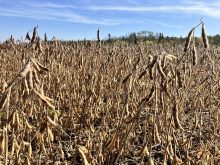Beijing | Reuters — China’s agriculture ministry outlined measures on Thursday for provincial governments to boost farmers’ income by developing the rural economy, including efforts to spur employment of migrant workers.
The world’s second largest economy is looking to bolster its ailing rural economy and achieve food security, as villagers increasingly move to cities for higher paying jobs, leaving its farms battling a shortage of labour.
Looking to widen income channels for farmers, the ministry urged provincial authorities to form and beef up new agriculture businesses, such as farmers’ cooperatives and family farms.
Read Also

U.S. to seek more foreign tariff cuts, CUSMA improvements in 2026
The U.S. Trade Representative’s office said on Monday it will seek further reductions in foreign tariffs and non-tariff barriers this year, enforce its “reciprocal” trade deals and consider launching new unfair trade practices investigations.
It also called for steps to encourage employment of migrant workers so as to raise their incomes.
The ministry backed activities such as development of resource contracting, property leasing, and shareholding in operating properties.
It asked rural collective bodies to participate in providing services such as production and labour.
The state owns all farmland in China, where farmers have decades-long land lease rights that collective groups exercise on their behalf.
China passed legislation in June to strengthen protection of farmers’ land rights and support development of village collectives, which will take effect in May 2025.
— Reporting by Mei Mei Chu















